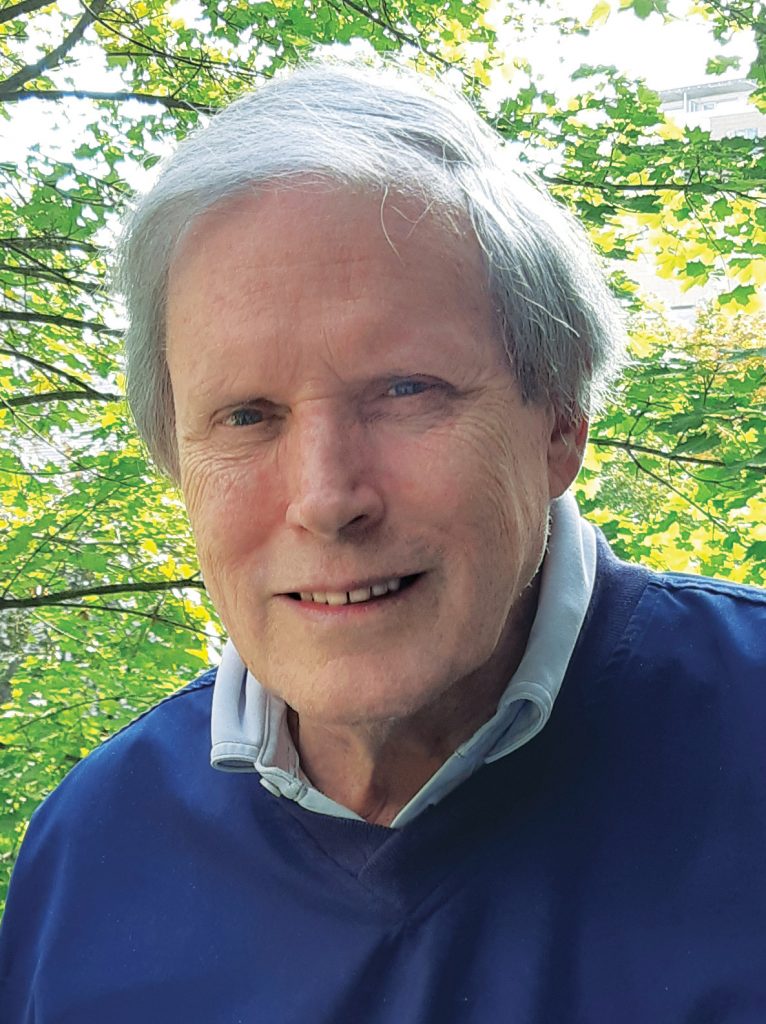The Diplomats
From the Editor / L. Ian MacDonald
Welcome to our special issue, The Diplomats, on the Canadians who represent our country to the world, a very different world in terms of issues and opportunities than the one inherited from previous generations.
We begin with a personal recollection and reflection from Bob Rae, Canada’s Ambassador and Permanent Representative to the United Nations, who shares memories of a cherished predecessor on that global stage, his own father, Saul Rae. Like father like son. As Bob writes in Memories of My Father: “Modern Canadian diplomacy has to speak with confidence, candour, humour and honesty and to ensure that its acts and deeds match its words.”
In a riveting dispatch from Ukraine, Canadian Ambassador Larissa Galadza writes: “From Kyiv, I can see and feel the work of Canadian Heads of Mission around the globe as they find ways to move the world to choke off President Putin’s and Russia’s war machine.”
Jeremy Kinsman, an old diplomatic hand and our lead foreign affairs writer, observes that “Canada’s version of ‘soft power’ needs diplomats to be able to speak semi-autonomously in the agitated global marketplace.”
Nadia Theodore, Canada’s new Ambassador to the World Trade Organization, says in an interview that “we are in an sweet spot of expertise meeting opportunity” at the WTO.
Former Ambassador to NATO Kerry Buck reflects on the role of women in diplomacy. “Senior women diplomats across countries understand how tricky it can be to be a woman working in international diplomacy,” she writes. “We stick together and offer support to each other in ways that male diplomats might not, because they don’t have to.”
Ailish Campbell, our Ambassador to the European Union, offers a perspective from Brussels, as she notes, “in the context of war”—Russia’s invasion of Ukraine. Many of the repercussions against Putin’s criminal acts, from retaliation to sanctions, from the EU to NATO and the G7, have unfolded on the diplomatic stage in Brussels after consultations and conversations behind the scenes.
Peter Boehm served as Canada’s G7 Sherpa, and now keeps a close eye on foreign affairs and diplomacy from his seat in the Senate, where he chairs the Standing Committee on Foreign Affairs and International Trade. He took time for a virtual conversation of email exchanges with Policy Associate Editor Lisa Van Dusen, who has been our lead in assembling The Diplomats cover thematic.
Michael Manulak of Carleton University’s Norman Paterson School and Oxford’s Duncan Snidal offer their thoughts on How the Internet has Changed International Diplomacy. As they write: “Now ‘Zoom Diplomacy’ and digital diplomacy generally have brought transformative change,”
In his column, Don Newman offers some insights into the changing lineup of practising diplomats he’s seen in a remarkable career spanning more than half a century. “Foreign policy and international affairs have passed from experts at foreign ministries and embassies,” he writes, “to a much larger community of special interests.”
Some of those special interests’ hands were apparent in the backstage diplomacy involved in the release of Canadians Michael Kovrig and Michael Spavor after a thousand days in captivity in China, where they had been seized following the arrest at Vancouver Airport of Meng Wanzou, CFO of Huawei Technologies, in response to an extradition request by US authorities. It’s called hostage diplomacy, and as Mike Blanchard and Fen Osler-Hampson write in their book, The Two Michaels, their release “was the result of intensive behind the scenes diplomacy led by Canada’s Ambassador to Beijing, Dominic Barton.” No career diplomat, but an international business consultant and former CEO of McKinsey and Company.
In Book Reviews, we lead with a delightful essay from Bill Fox on John Honderich’s memoir of his life at the Toronto Star, completed shortly before his sudden passing last year at the age of 75. Honderich was the heir apparent of Beland Honderich, and shared his father’s signature question in the newsroom: “What does it mean to Metro?” As in Toronto. And Fox, himself a former “Star man” writes that John practised “the Star’s philosophy” to “get it first, serve it up, play it big,” Fox concludes that his friend was “determined to be the son who did the job.”
From Policy Social Media Editor Gray MacDonald, we offer a strong review of Hope is a Woman’s Name by Amal Elsana Alh’jooj. Gray writes that the memoir “covers a journey that has taken her from a childhood herding sheep…to an international life of activism for peacemaking and minority rights.”
Finally, Colin Robertson looks at Master Negotiator by Diana Villiers Negroponte, an important book on a great American diplomat, James A. Baker, US Secretary of State under the first President George Bush, who led the peaceful transition from the end of the Cold War and the dissolution of the Soviet empire, to the New World Order.
Enjoy.

